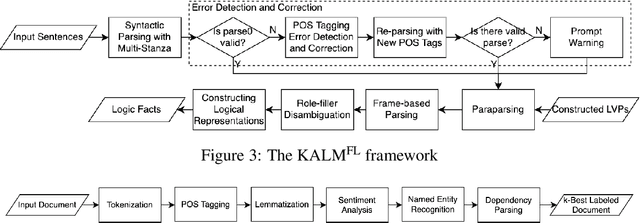Giorgian Borca-Tasciuc
Department of Computer Science, Stony Brook University
Provable Fairness for Neural Network Models using Formal Verification
Dec 16, 2022



Abstract:Machine learning models are increasingly deployed for critical decision-making tasks, making it important to verify that they do not contain gender or racial biases picked up from training data. Typical approaches to achieve fairness revolve around efforts to clean or curate training data, with post-hoc statistical evaluation of the fairness of the model on evaluation data. In contrast, we propose techniques to \emph{prove} fairness using recently developed formal methods that verify properties of neural network models.Beyond the strength of guarantee implied by a formal proof, our methods have the advantage that we do not need explicit training or evaluation data (which is often proprietary) in order to analyze a given trained model. In experiments on two familiar datasets in the fairness literature (COMPAS and ADULTS), we show that through proper training, we can reduce unfairness by an average of 65.4\% at a cost of less than 1\% in AUC score.
Knowledge Authoring with Factual English
Aug 05, 2022



Abstract:Knowledge representation and reasoning (KRR) systems represent knowledge as collections of facts and rules. Like databases, KRR systems contain information about domains of human activities like industrial enterprises, science, and business. KRRs can represent complex concepts and relations, and they can query and manipulate information in sophisticated ways. Unfortunately, the KRR technology has been hindered by the fact that specifying the requisite knowledge requires skills that most domain experts do not have, and professional knowledge engineers are hard to find. One solution could be to extract knowledge from English text, and a number of works have attempted to do so (OpenSesame, Google's Sling, etc.). Unfortunately, at present, extraction of logical facts from unrestricted natural language is still too inaccurate to be used for reasoning, while restricting the grammar of the language (so-called controlled natural language, or CNL) is hard for the users to learn and use. Nevertheless, some recent CNL-based approaches, such as the Knowledge Authoring Logic Machine (KALM), have shown to have very high accuracy compared to others, and a natural question is to what extent the CNL restrictions can be lifted. In this paper, we address this issue by transplanting the KALM framework to a neural natural language parser, mStanza. Here we limit our attention to authoring facts and queries and therefore our focus is what we call factual English statements. Authoring other types of knowledge, such as rules, will be considered in our followup work. As it turns out, neural network based parsers have problems of their own and the mistakes they make range from part-of-speech tagging to lemmatization to dependency errors. We present a number of techniques for combating these problems and test the new system, KALMFL (i.e., KALM for factual language), on a number of benchmarks, which show KALMFL achieves correctness in excess of 95%.
* In Proceedings ICLP 2022, arXiv:2208.02685
 Add to Chrome
Add to Chrome Add to Firefox
Add to Firefox Add to Edge
Add to Edge